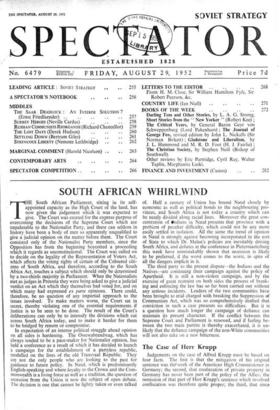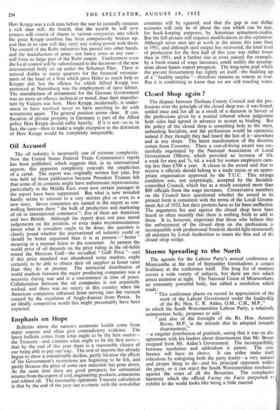The Case of Herr Krupp
Judgements on the case of Alfred Krupp must be based on four facts. The first is that the mitigation of his original sentence was thework of the American High Commissioner in Germany; the second, that confiscation of private property in Germany has never been part of the policy of the Allies; the remission of that part of Herr Krupp's sentence which involved confiscation was therefore quite proper; the third, that since Herr Krupp was a rich man before the war he naturally remains a rich man still; the fourth, that the wealth he will now possess,will consist of shares in various companies into which the great Krupp combine has been compulsorily broken up, and that in no case will they carry any voting-power with them. The control of the Ruhr industries has passed into other hands, and the manufacture of arms—not heavy arms in any case— will form no large part of the Ruhr output. Furthermore even the local control will be subordinated to the decisions of the new international body set up under the Schuman Plan. There is natural dislike in many quarters for the financial reinstate- ment of the head of a firm which gave Hitler as much help as Krupps did, but the offence for which Alfred Krupp was sentenced at Nuremburg was the employment of slave labour. The manufacture of armaments for the German Government was no more an offence, technical or moral, than their manufac- ture by Vickers was here. Herr Krupp, incidentally, is under- stood to have resolved never to have anything to do with armaments again. The general position seems clear. If con- fiscation of private property in Germany is part of the Allied policy Herr Krupp should suffer heavily. If it is not—as is, in fact, the case—then to make a single exception to the detriment of Herr Krupp would be completely inequitable.



































